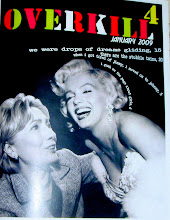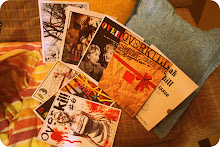(“I can’t prove this makes any sense, but I sure hope that it does.”)
Before I began writing and drawing, I immersed myself in music. And I’m not talking about tinkering on the plastic keys of some electronic piano or cutting my fingers on guitar strings…nah, that came years later, and not very far.
Why it’s so hard to write about music: It came before language. Before I could speak well, there was the car radio and WDVE. A child can’t articulate the deep senses of wonder thrumming through her, can’t take separate things like hot, clear skies and luminescent leaves of grass, and tie them together into a fitting frame of reference. Expanses and pieces of beauty assure her, though, of a larger world than herself, one she’ll join soon, someday. The child knows she contains multitudes because bigger things than her tell her so.
Led Zeppelin was the music of my kidhood. Next came U2. Rush after them. But Led Zeppelin:
When you’re eight years old and listening to the layered lyrics of “Ramble On” on the radio, your comprehension skills, so valued in the standardized classroom, are put on hold. I guess some people, listening through all of the CDs for the first time, wonder how one band could sing themselves hoarse in “Heartbreaker,” then, on the same track, switch to the jaded, jaunty “Livin’, Lovin’ Maid,” and then traipse onto “Stairway to Heaven” and rattle through “Misty Mountain Hop” and “Ramble On.” It’s not hard to figure out, though. They’ve just found out how to fully express their range of comprehension. They created and defined their external frame of reference. Each song is the crystallization of several emotions, thoughts, fantasies, impressions, memories…
When you’re ten years old and laying in bed during a hot May night, and you can’t imagine yourself anywhere else but school, school, and more school, you wrap your headphones cords around your fingers and snap shut the flimsy jaw of your cassette player. First there is the moment of sacred silence before you press PLAY. Headphones encircle your head; you crush one foam disc painfully against the pillow, sinking into a reverie. The button clicks and suddenly Bono is howling, singing U2’s unusual brand of dignified anguish. They are searching. So are you. Their songs are thrillingly spiritual: you have no understanding of God except for what you cannot express, but these guys introduce you to expanses of the soul you never thought to tread. They lift up your days and light up your nights.
When you’re twelve years old and crammed into a yellow cattle car every morning and afternoon, jolting along home and bruising your knees against the hard seat in front of you, there’s the electric trill and thin falsetto of Rush to make the long ride worthwhile. The only way to handle this kind of music is to throw open your windows at home and turn up the stereo as loud as you can. Nothing can contain the spirit of the radio. You just let it permeate the still, cool atmosphere of a late March afternoon. Rush is really something else, you think. They even quote Shakespeare, whose glorious sonnets are finally becoming clear after months of unknowing readings, like a muddied creek shining clear after a few hours of peace. One kind of music leads to another.
About five or six years later, I got a four disc set of Led Zeppelin that had most of their songs on it. I’d tap on the CD player until it worked, and I’d lie on my floor and listen. Sound filled the room. I just lay there. Joy by osmosis. Yeah. I guess that’s all what listening to music really is. You are what you absorb. Maybe, if you rewind the tapes enough times.
—Katie McHugh






No comments:
Post a Comment
dude, let us know what you're feeling.